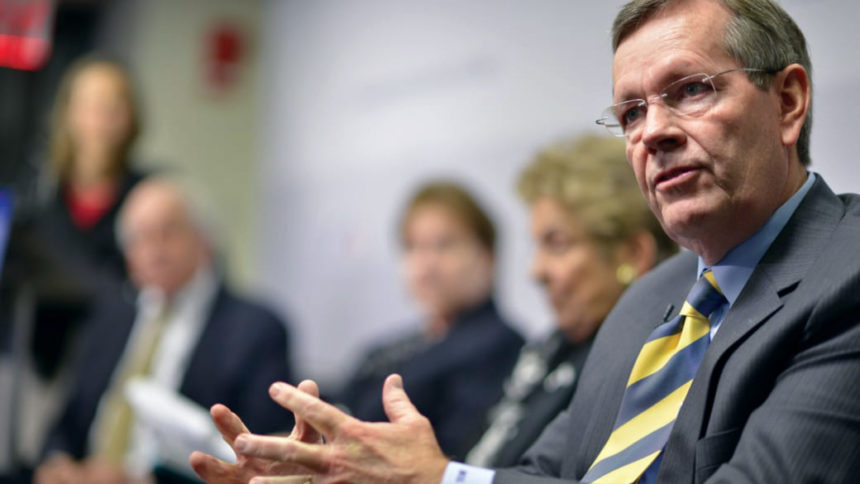
A former secretary of Health and Human Services and Utah governor believes Medicare is “drifting toward disaster,” requiring immediate attention from lawmakers on both sides of the aisle.
Mike Leavitt made his case in a 14-page white paper released by his consulting firm, Leavitt Partners, on Tuesday. In it, he blames some nursing homes practices for accelerating Medicare’s problems.
Leavitt noted that the Medicare trust fund — which provides a significant source of funding for long-term care services, including many rehab and therapy patients — is expected to reach fiscal insolvency by 2026
Three “chronic ailments” are hastening the payment program’s demise, he believes, including “silo syndrome,” where all providers are paid separately; “chronic more,” rewarding nursing facilities and other institutions for piling on services with little regard to their value; and “quality indifference.”
“Skilled nursing facilities that prevent unnecessary rehospitalizations are paid the same as those that don’t,” Leavitt wrote about the third silo. “Patients deserve to know the quality of the care they receive according to standards set by the experts. The information should be transparent, and most of all, we should reward quality.” Providers took exception to those assertions on Thursday, noting that CMS now penalizes nursing facilities for their readmission rates.
Leavitt asserted that failure to take congressional action would lead to “unsustainable healthcare costs, bitter intergenerational conflict and widespread loss of coverage.”
“Disaster is not inevitable. If we act now, we can change the outcome,” he wrote.
Leavitt urges policymakers to find a “partisan eclipse” that would allow both sides to work together toward putting Medicare on a path to solvency. One particular area of common interest, he writes, is healthcare’s continuing shift away from paying providers for the volume of services delivered, toward value-based care models that reward them for better outcomes.
“I believe solving the healthcare puzzle is this generation’s challenge,” he concludes. “It will require change.”




